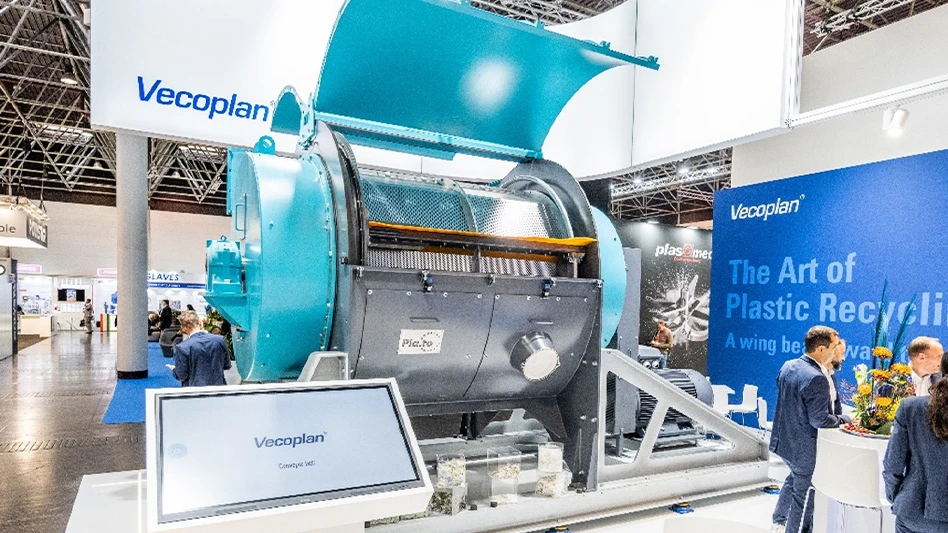
According to a recent study done by Blancco and an independent research company, nearly three-fourths of electronic equipment that could be used again is being destroyed.
Blancco, Joensuu, Finland, specializes in data security and helps companies safely and securely erase their data so devices can be reused rather than go to a landfill or to be recycled. In this study, 1,850 executives from major corporations, including legal and pharmaceutical companies, and government departments were asked about their practices when it comes to end-of-life electronics and corporate sustainability.
The problem with e-waste isn’t going away, and Blancco’s study revealed that the issue is much bigger than many may realize. The World Economic Forum and the UN E-Waste Coalition found that 50 million metric tons of end-of-life electronics are generated each year. That’s the same weight as all the commercial aircraft that have ever been built, Blancco says. What’s more staggering about those numbers is that only 24 percent of reusable electronics are actually being reused, revealing a disparity between reuse and the 83 percent of corporate social responsibility (CSR) policies that mention it.
“It takes time to communicate those policies, find the right stakeholders, reeducate the organization,” Blancco’s Vice President of Cloud and Data Erasure Fredrik Forslund says.

“If you’ve been destroying equipment for the last 20 years, moving to an updating process where destruction is not used, it takes time.”
Forslund says the study reveals that many companies are trying to be better with sustainability, but it isn’t something that can change overnight, especially if confidential data are involved.
For large organizations, it’s often easy to phase in more sustainable practices for e-scrap, starting with tablets, desktop and laptop computers is simpler. But when data centers and large servers are involved, wiping and destroying the data can be more difficult and labor-intensive.
Cost is also a major factor for many companies, and Forslund says some believe destroying and recycling items is more cost-effective. But, once they see how many devices can be wiped and reused, that often saves more money.
Forslund adds that it’s becoming more expensive to store data, so more companies should be looking into ways to safely destroy what they no longer need.
With data erasure, some companies concerned about data leaving their sites need reassurance. For Blancco, there is a strict chain of custody, allowing companies to follow the process as their data is removed, so they can make sure everything is overwritten before items are reused.
Even with those reassurances, Forslund says he believes one problem will force companies to reevaluate their CSR as data erasure develops. Right now, millions of people are working from home, remotely accessing company data. Since data are off-site already, those companies may need to resort to remote erasure to protect themselves.
“There will be a challenge when those assets need collection and decommissioning and proper recycling, etc., and there, once again, you’ll have the aspect of being able to remote to your home office, erase your computer and have someone pick it up without being afraid of corporate data being leaked,“ Forslund says.
While he says he doesn’t believe sustainability can be addressed overnight, this study shows that more companies are trying to move away from destruction and toward partial reuse, even if that move is slower than some may like to see.
Blancco was established in 1997 to help organizations safely erase data and keep current data secure. It offers an audit trail for data erasure, as well as Blancco Mobile Insurance, Blancco Mobile Buy-back/Trade-in and Blancco Mobile Retail solutions, which offer organizations real-time valuation for mobile devices.
Latest from Recycling Today
- Equipment from the former Alton Steel to be auctioned
- Novelis resumes operations in Greensboro, Georgia
- Interchange 360 to operate alternative collection program under Washington’s RRA
- Waste Pro files brief supporting pause of FMCSA CDL eligibility rule
- Kuraray America receives APR design recognition for EVOH barrier resin
- Tire Industry Project publishes end-of-life tire management guide
- Des Moines project utilizes recycled wind turbine blades
- Charter Next Generation joins US Flexible Film Initiative





